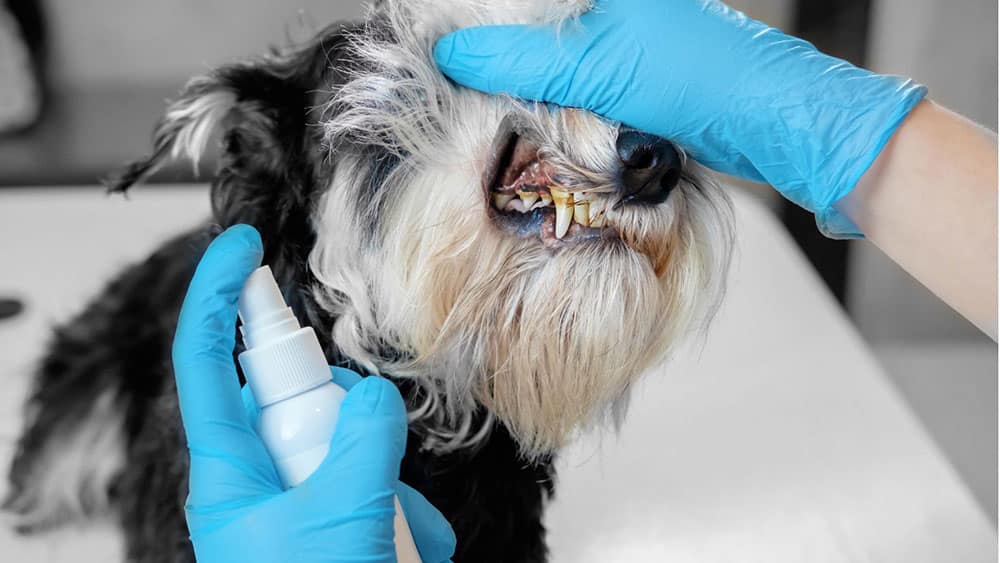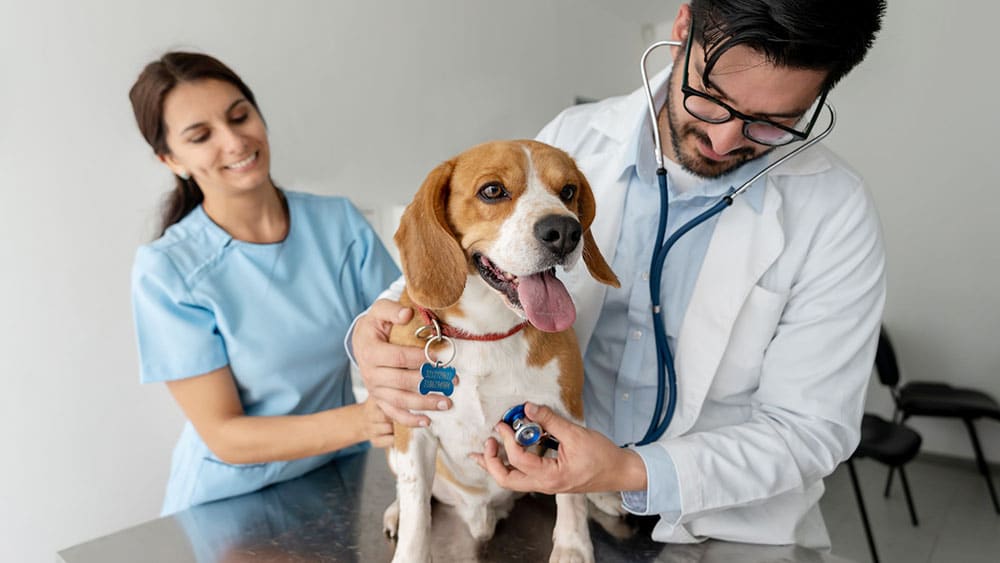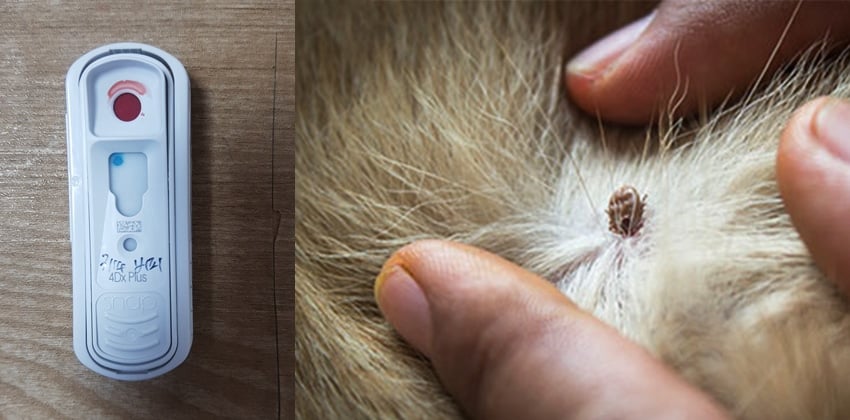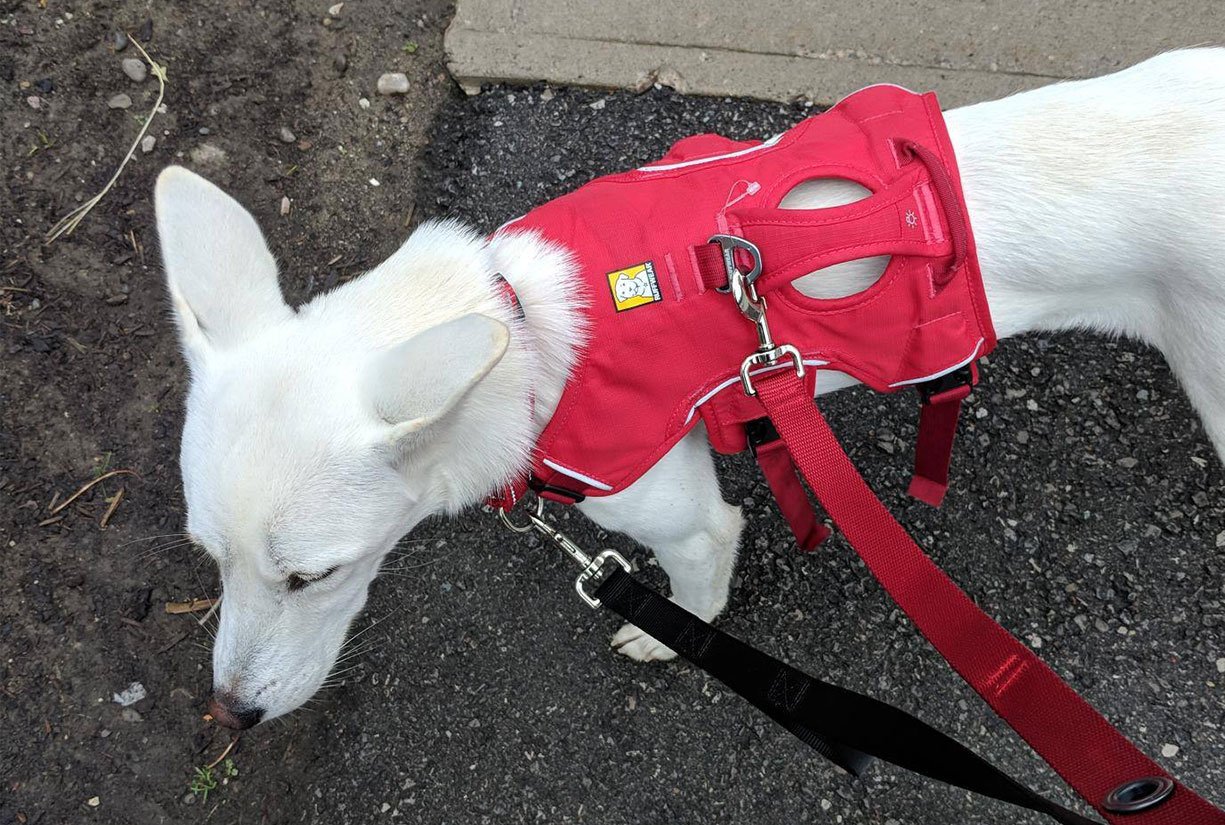Importance of Annual Wellness Exams
Guest Article by Tatiana Thompson
It’s that time of year again! The snow is melting, the temperatures are rising, and the grass is finally getting green again. It is a very exciting time for your dog as there are more interesting things to see and more mischief to get into! While the rising temperatures are a treat, they also bring with them undesirable side effects, namely; Ticks, Fleas, and Heartworm disease.
Vaccinations, tick/flea & heartworm prevention, routine blood work, and dental checkups are important components of wellness care and can prevent diseases that are not only life-threatening to your pups but are also very expensive to treat. Vets recommend regular wellness exams for the same reason our doctors and dentist recommend them – if you can detect a problem in its early stages, it’s more likely to be treated and resolved with less expense, less suffering, and better success!
In fact, missing your pet’s annual physical exam may be extremely harmful because pets will often try to hide symptoms of illness when they are not feeling well and frequently only show signs when they are unable to mask them any longer. So, let’s get right down to business, shall we?
Ticks, Fleas, and Heartworms:
It is very important to get to the vet before the Tick and Flea season starts to start your pups on preventative measures.
- Fleas and ticks carry all sorts of nasty diseases that can make your furry family members very ill and can even be life-threatening in some situations. Both fleas and ticks can give younger pets anemia, which can be deadly. Ticks (particularly deer ticks) transmit Lyme disease. Lyme disease typically causes joint pain and fever, but it can lead to kidney failure if it’s not treated in time.
- Heartworm disease is a serious disease that results in severe lung disease, heart failure, other organ damage, and death in pets, mainly dogs, cats, and ferrets. It is caused by a parasitic worm called Dirofilaria immitis. The worms are spread through the bite of a mosquito.
- Even if a flea or tick bite doesn’t make your pup sick, the bite is still going to make them uncomfortable and unhappy! Flea and tick bites are itchy and painful.
- Protecting your pets from fleas and ticks is bound to keep you happy and comfortable, too. From finding fleas and ticks on your carpet to having bites on your skin, or even getting Lyme disease, fleas and ticks in the home can cause all sorts of problems.
Vaccinations:
There are some extremely important vaccinations (some are required by law in Canada!) that must be boosted annually or every 3 years depending on the dosage.
Core Vaccines:
- Canine Distemper (CDV), Canine Parvovirus (CPV- 2), Canine Adenovirus (CAV-2) and Rabies. These are highly contagious viral diseases with some being fatal. They are spread directly through contaminated feces, and urine or indirectly through the air.
- Rabies is primarily spread to dogs through a bite (it Is also legally required).
Non-Core Vaccines
- Bordetella (kennel cough), Parainfluenza, Leptospirosis, Lyme disease, etc. These are typically bacterial-based diseases. If your pups go to dog parks, doggie daycare, or any place where a large number of dogs congregate, it’s a good idea to get these vaccines.
- Leptospirosis for dogs can be transferred to humans (zoonotic) and can be picked up from bacteria in water, or contaminated soil affected by urine. So, if your pup goes to parks and likes to lick pee, it may be an important vaccination to get.
Dental Check-up
Dental health is a very important part of your pet’s overall health, and dental problems can cause, or be caused by other health problems. Your pet’s teeth and gums should be checked at least once a year by your vet to check for early signs of a problem and to keep your pet’s mouth healthy.

Have your dogs’ teeth checked sooner if you observe any of the following problems:
- Bad breath that persists after brushing
- Teeth that are discolored or covered in tartar
- Abnormal chewing, drooling, or dropping food
- Reduced appetite or refusal to eat
- Pain in or around the mouth when touched
- Swelling in the areas surrounding the mouth
Some pets become irritable when they have dental problems, and any changes in your pet’s behavior should prompt a visit to your veterinarian.
Professional teeth cleaning and x-rays could be done as a preventative measure to ensure your dog’s continued dental health!
Blood Work, Urine, and Stool Samples to Create a Baseline
Detection through blood tests helps prevent and treat potentially dangerous illnesses. Sick or senior pets often have more than one disease affecting them, complicating diagnosis and treatment. Blood tests can help pinpoint the problems.
Blood Tests Generally Include:
- Complete Blood Cell Count (CBC) provides important information about the types and number of blood cells in your pet’s blood. A low red blood cell count, for example, indicates anemia, while a high white blood cell count can indicate an infection, chronic inflammation, or other disease process.
- Blood Chemistry Profile is particularly important for evaluating organ function (e.g., liver, kidneys), electrolytes, blood sugar, screening for the presence of an endocrine disorder, etc. Any abnormalities will help vets decide on further diagnostic tests or treatments.
- Heartworm Tests can detect evidence of heartworm disease. For a more complete picture, vets will often combine a blood panel with other tests, such as a urinalysis and fecal examination.
Urinalysis
Urinalysis is used to assess the overall health of your dog’s urinary tract, including the kidneys and bladder, and to check for other health indicators such as glucose regulation and liver function. It is recommended that a yearly urinalysis is done for all pets, and more frequent testing for older animals and those with chronic health conditions.
Stool Tests
Stool samples are used to test your pet for intestinal parasites which may be harmful to your pets and in some cases may be contagious to humans. Adult pets should be tested every 6 months. These time frames correspond to times that your pet typically needs to come in for a wellness examination and vaccinations, so you can just bring a sample for those appointments.
Subscribe for Updates
Get our dogs in your inbox once a month, along with our latest news and events. We never send spam, and you can opt out at any time.







